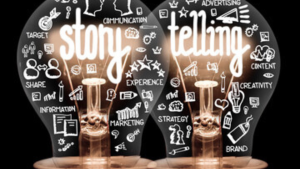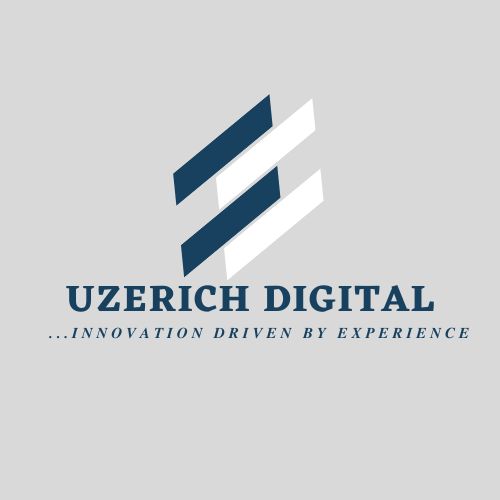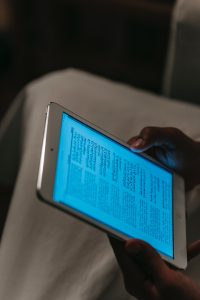INTRODUCTION
Digital literacy foundation, involves being proficient in basic computer and internet skills.
This includes being able to operate computers, mobile devices, and various software applications, as well as understanding how to access and navigate the internet.
Digital literacy also extends to the ability to use digital tools for communication, such as email, instant messaging, and social media platforms.
Surmounting the basic technical skills, digital literacy comprises critical thinking and problem-solving abilities.
It involves evaluating information found online for accuracy, reliability, and credibility.
Digital literacy also includes the capacity to discern between different types of digital media, such as news articles, blog posts, and opinion pieces.
This skill helps individuals make informed decisions and avoid falling victim to misinformation or scams.
Digital literacy another important aspect is online security /privacy, learning continuously, evaluate rationality, advanced computer/tech skill, online course tutorial, community forum online and digital posterity.
Being digitally literate means comprehending the importance of safeguarding personal information, using secure passwords, and being mindful of online privacy settings.
It also involves recognizing potential risks, such as phishing attempts or online identity theft, and knowing how to protect oneself and others from such threats.
Digital literacy comprises of the ability to effectively collaborate, develop the skill and communicate in digital environments.
And includes utilizing digital tools for teamwork, project management, and online collaboration. It also involves being able to express oneself through digital media, such as creating and sharing content, and understanding the ethical and legal implications of digital publishing.
What Is Digital Literacy?
Digital literacy refers to the ability to effectively navigate, comprehend, and operate digital technologies and information in today’s interconnected world.
It comprises of a wide range of skills, knowledge, and attitudes necessary to thrive in the digital age.
In a fast evolving digital landscape, being digitally literate has become progressively important for individuals and societies alike.

The foundation of digital literacy
The foundation of digital literacy is built upon several important element. These components form the basis for developing and enhancing one’s digital literacy skills.
Here are some foundational elements of digital literacy
- Technical Skills: Its having a solid understanding of basic computer and internet skills. This includes knowing how to operate computers, mobile devices, and software applications. Ability to use common tools like word processors, spreadsheets, web browsers, and search engines is crucial.
- Information Literacy: Its involves the ability to find, evaluate, and effectively use digital information. It requires critical thinking skills to assess the credibility, accuracy, and relevance of online sources. Information literacy also includes the capacity to organize and manage digital information effectively.
- Media Literacy: With the abundance of digital media, being able to navigate and interpret different forms of digital content is essential. Media literacy involves understanding how to analyze and critically evaluate various types of media, including text, images, audio, and video. It also encompasses recognizing biases, understanding media production techniques, and being aware of the influence of media on society.
- Communication and Collaboration: The ability to communicate effectively using digital tools. This includes ability in emailing, instant messaging, social media, and other online communication platforms. Collaboration skills involve working with others through digital channels, utilizing online project management tools, and understanding online etiquette and netiquette.
- Privacy and Security: When you understanding the importance of privacy and security in the digital realm, this includes knowing how to protect personal information, recognizing and avoiding online threats like phishing or malware, and understanding the implications of sharing data online. It also involves being aware of digital rights and responsibilities.
- Ethical and Legal Considerations: Encompasses an understanding of ethical and legal considerations in the digital world this includes respecting copyright laws, understanding intellectual property rights, and adhering to proper online behavior. Being digitally literate means recognizing the consequences of one’s digital actions and behaving responsibly in online environments.
These foundational elements of digital literacy provide individuals with the knowledge and skills necessary to navigate and thrive in the digital age. Developing and strengthening these components is essential for becoming digitally competent and responsible in an increasingly interconnected and technology-driven world.

Digital Literacy Understanding The basic Technical Skills
- Operating Systems: Familiarize with several operating systems, for instance Windows, macOS, or Linux, is important. Understanding how to navigate the user interface, manage files and folders, install and uninstall applications, and customize settings are fundamental skills.
- Hardware and Devices: The basic knowledge of hardware components, such as desktop computers, laptops, smartphones, and tablets, is essential. Understanding how to connect peripherals like printers, scanners, or external storage devices is also important.
- Internet and Web Browsing: Proficiency in using web browsers is vital. This includes knowing how to open and navigate web pages, use bookmarks, manage browser settings, and clear browsing history. Understanding concepts like URLs, hyperlinks, and search engines helps in efficient web browsing.
- Email and Communication: Being able to create and manage an email account is a fundamental skill. This involves composing and sending emails, organizing email folders, and understanding email etiquette. Additionally, understanding other communication tools like instant messaging or video conferencing platforms enhances digital communication skills.
- File Management: Organizing and managing files and folders is crucial for digital literacy. Basic file management skills involve creating, renaming, moving, and deleting files and folders. Understanding concepts like file formats, compression, and file sharing methods are also important.
- Productivity Software: Familiarize with productivity software, such as word processors, spreadsheets, and presentation tools, is essential. Knowing how to create, edit, format, and save documents helps in various tasks, including writing reports, creating spreadsheets, or delivering presentations.
- Internet Searching: Effective internet searching skills are valuable for finding information online. Understanding search engine functionality, using appropriate keywords, and evaluating search results are important to retrieve relevant and reliable information.
- Online Security and Privacy: Basic knowledge of online security practices is crucial for digital literacy. This includes creating strong passwords, understanding the importance of software updates and antivirus protection, recognizing phishing attempts, and safeguarding personal information online.
- Troubleshooting: Being able to troubleshoot common technical issues is an essential skill. This involves identifying and resolving common software or hardware problems, such as restarting devices, checking connections, or reinstalling applications.
Developing proficiency in these basic technical skills lays a strong foundation for digital literacy. With these skills, individuals can confidently navigate digital tools, platforms, and applications, and effectively utilize technology for communication, information retrieval, productivity, and more.
Important Aspect in Digital Literacy
Learning Continuously
Evaluate Rationality
Online Security/ privacy
Employment Search
Advanced Computer/ Tech Skill
Courses online and tutorials
Community Forum Online
Digital Posterity
Learning Continuously
There are ways to learn through research, video, audio, exploring through physical text and images
Can be used for educating student task. Digital skill is not a case of just learning and you are done
It requires dedication.
Worked assessed is increasing submitted electronically and assessment are given online. Communicating
and collaborating on content can ease a variety of online platform.
Evaluate Rationality
With the new opportunities, new demands and responsibilities for everyone to evaluate
and look at the potency and rationality of the wealth in formation available to us.
It’s important to evaluate the credibility, relevance, and accuracy of sources. Digital literacy involves assessing information for bias, checking for reliable sources, and understanding the importance of fact-checking.
Digital literacy is finding ways for students to practice using technology in ways that mirror its real world uses, whether this means giving students opportunities to practice building their own websites and apps, or respectfully engage in online discussions.
Online Security / Privacy
Being conscious of online threats, practicing safe internet habits, and protecting personal information are vital skills. This includes using strong passwords, recognizing phishing attempts, and understanding privacy settings on various platform
Employment Search
Look for projects or opportunities where you can apply your digital literacy skills. Volunteer for digital initiatives, collaborate on online projects, or create your own digital content. Practical application will reinforce your learning and help you develop real-world expertise.
Advanced computer/ Tech skill
Focus on the value and benefits of new technologies to you personally. So, rather than approach new technologies from a place of fear, try asking yourself, “How will this help me do a better job and achieve my personal and professional goals? Forbes
Follow reputable technology news sources, subscribe to relevant blogs, and join online communities where people share the latest information.
Community Forum online
Participate in online seminars, social media groups, and communities dedicated to technology and digital literacy. Engage in discussions, ask questions, and learn from others who have more experience in the field.
Courses online/ Tutorials
Furthermore, the basic skills and assess whether there are any gaps in your knowledge.
If you need to augment your digital skills, depending on where you are in the world, there should be some functional government or institutional learning resources.
A great example in the UK comes from the Open University, which has a free course called “Digital skills: succeeding in a digital world,” designed to help people develop the conviction and skills for life online. Forbes
Digital Posterity
Digital literacy is crucial in today’s generation, as technology expands suffuse all facet of our lives.
It empowers individuals to effectively engage with digital resources, navigate the online world safely, critically evaluate information, and actively participate in the digital economy and generation.
Sundry needs to be inclined to understand and welcome this new digital landscape, confidence
and proficient in guiding our posterity generation through is what we need.

SUMMARY
Digital literacy is a broad set of skills and competencies that enable individuals to navigate the digital world with confidence.
It goes beyond basic technical proficiency and includes critical thinking, information evaluation, privacy awareness, collaboration, and effective communication.
Developing and maintaining digital literacy is essential for individuals to fully participate in the digital age and make the most of the opportunities and challenges presented by the digital revolution.




